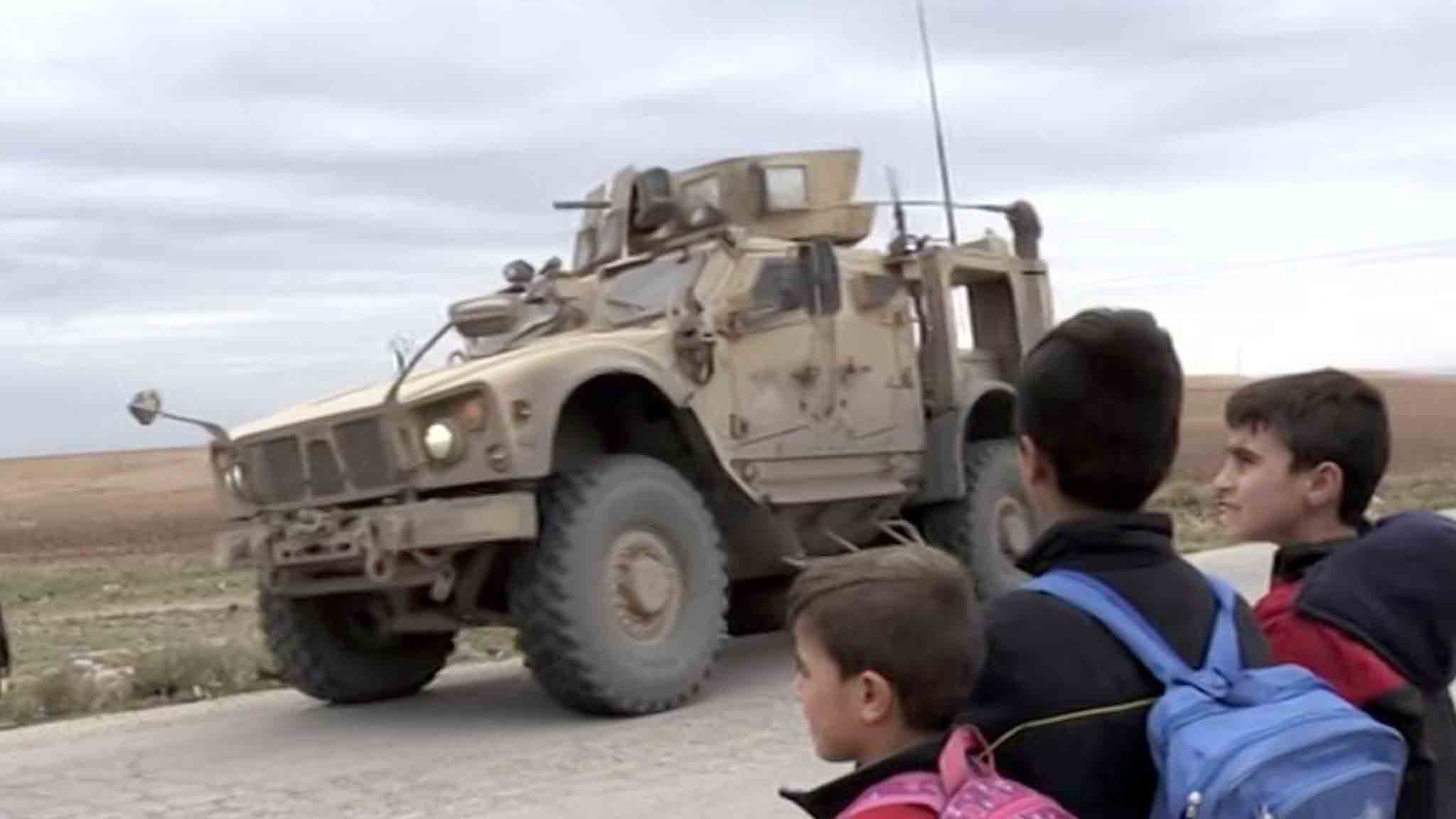
Politics
08:00, 24-Dec-2018
Erdogan, Trump agree to avoid power vacuum in Syria
Updated
07:08, 27-Dec-2018
CGTN
01:35

Donald Trump and Turkish President Recep Tayyip Erdogan agreed Sunday to prevent a power vacuum in Syria after U.S. ground forces withdraw, in a phone conversation days after the U.S. president shocked global partners by announcing Americans would leave the war-scarred country.
Turkey was a rare ally that lauded Trump's momentous decision to pull the 2,000 U.S. troops out of Syria, where they have been helping assisting in a multinational fight against ISIL.
"The two leaders agreed to ensure coordination between their countries' military, diplomatic and other officials to avoid a power vacuum which could result following any abuse of the withdrawal and transition phase in Syria," the Turkish presidency said in a statement.
Hours earlier Trump had tweeted that he and Erdogan "discussed ISIL, our mutual involvement in Syria, & the slow & highly coordinated pullout of U.S. troops from the area." Erdogan tweeted shortly thereafter, saying the two leaders "agreed to increase coordination on many issues including trade relations and the developments in Syria," dubbing the call "productive."
U.S. troops will leave under the auspices of a new Pentagon chief set to start next month, after Jim Mattis resigned from the post citing key differences, including on Syria, with the often-impulsive Trump.
An American exit would allow Turkish troops to move against Kurdish fighters in Syria who have played a key role in the war against ISIL but are deemed terrorists by Ankara. Many U.S. politicians and international allies fear the withdrawal is premature and would further destabilize the already devastated region.
A U.S. withdrawal, said Mutlu Civiroglu, a Kurdish affairs analyst, will open the way "for Turkey to start its operations against the Kurds, and a bloody war will begin."
French President Emmanuel Macron on Sunday said he "deeply regretted" Trump's decision, and that "an ally must be reliable." Several U.S. politicians from both parties rejected Trump's claim that ISIL had been defeated, and many in the US military expressed alarm and dismay at the thought of suddenly abandoning Washington's Kurdish partners.
And Trump's sudden decision sparked turmoil within his administration, prompting the resignation of Mattis as well as of Brett McGurk, the special envoy to the anti-ISIL coalition.
Plans for the troop withdrawal will now be overseen by Deputy Secretary of Defense Patrick Shanahan, who Trump on Sunday said would replace Mattis starting January 1.
Source(s): AFP

SITEMAP
Copyright © 2018 CGTN. Beijing ICP prepared NO.16065310-3
Copyright © 2018 CGTN. Beijing ICP prepared NO.16065310-3